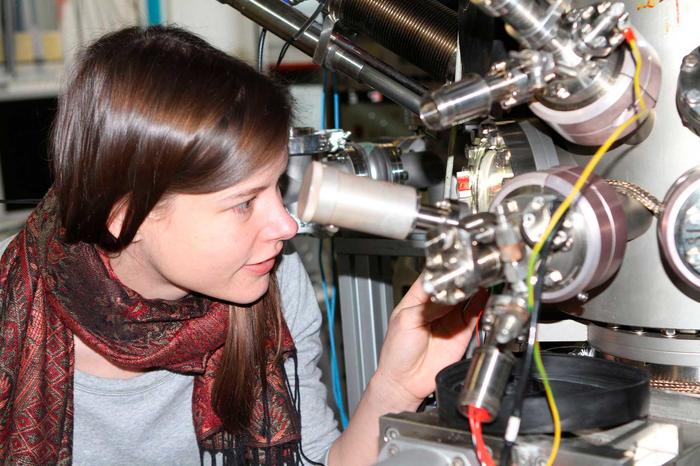Bachelor of Science in Physics
- Degree - Bachelor of Science (B.Sc.)
- Fundamental education in Physics without a specialization
- Standard period of study - 6 semesters
- Teaching language - German
- Start of studies - winter semester
- No admission restriction
- No tuition fees
Gentle start
At the beginning we offer a bridge course in mathematics as well as a lot of support by advanced students. For the start we do not grade some exam results or expect the results rather towards the end of the second semester.
Excellent career opportunities
- in the research, development, education
- in the economics and different industries
Since our Bachelor Program is Germany-only, please consult our German page for more details and the application process. International students with German language skills at level C1 (and higher) are very welcome to apply.
Bachelor in Physics
Content of studies
Physics occupies a central position among the natural sciences and provides important impulses for biology, chemistry, geological sciences, mathematics and philosophy. The study program is research-oriented and provides a broad general education in physics including thorough fundamentals in theoretical and experimental physics.
What do Bachelor students study in physics?
-
modern questions and methods in physics research
-
the ability to make critical judgments and act responsibly
-
general professional skills such as technical skills in the laboratory, handling data analysis, problem-solving in groups and presentation techniques
We prepare students for jobs in science and research, in the technological field, in information processing or innovation development.
Program's structure
To complete the Bachelor's program, 180 credit points (CPs) are to be collected. We recommend taking about 30 CPs each semester.
Compulsory modules include courses in mathematics, experimental and theoretical physics, and introduce topics in modern physics such as quantum mechanics, molecular physics, and solid-state physics.
Compulsory modules
Introduction to physics
Electrodynamics and optics
Fundamentals of measurement and laboratory techniques
Structure of matter
Analytical mechanics
Quantum mechanics
Theoretical electrodynamics
Linear algebra
Analysis
Lab courses are compulsory
In several lab courses, students perform experiments in the laboratory and document experiments in reports. Students can complete lab courses during the semester or as block courses in a semester break.
In the elective area, students select modules of personal interest and choose topics on which they would like to focus later in their studies.
Elective modules offered by the Physics Department
Biophysics
Astronomy and Astrophysics
Nuclear and Elementary Particle Physics
Computational Physics
Selected Chapters of Physics
Special Topics in Physics A
Special Topics in Physics B
Elective modules offered as general bachelor modules by different departments of the Freie Universität Berlin
Business Administration
Biochemistry
Bioinformatics
Biology
Chemistry
Geological Sciences
Computer Science
Mathematics
Meteorology
Philosophy
Economics
In the so-called ABV modules, students prepare themselves for increasingly complex academic job markets. They acquire key interdisciplinary qualifications and practical professional experiences such as project management, business expertise or communication skills.
Professional internship is mandatory
The professional internship provides students with an insight into possible professional fields and into the requirements of the job market. Recommended internship locations are companies, non-university research institutions, public authorities and other governmental institutions as well as political parties.
At the end of the Bachelor's program, students complete theses in a selected field of study in which they show the ability to solve scientific problems independently. As a rule, a bachelor thesis comprises 7500 words and can be of a theoretical or experimental nature. Students have nine weeks to work on the topic and must have handed in the bachelor thesis within 24 weeks.
Study and exam regulations (in German)
Please note that the German version only is legally binding.
